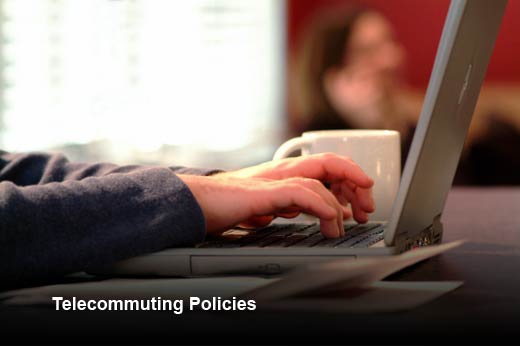For the past few years, millennials (those born between 1980 and 1995) have dominated the workforce conversation. And while this group will likely continue to dominate the generational discussion about work for some time, a new generation is rising quickly that could completely turn the tables on the definition of what is expected in a workplace.
This fall, the graduating class of 2016 will enter college, and businesses around the world will have four years to prepare for Generation Z (those born from 1995 to the early 2000s). Unlike their older millennial counterparts, who grew up with a mobile technology boom, the birth of social media and the rise of the sharing economy, for Gen Z, technology — and the mobility that comes with it — is all they know and what they expect in the workplace.
Gen Z is a group of natural-born collaborators. Growing up with the world at the touch of a keyboard and mouse, physical distance is much less significant to a member of Gen Z. To interact with peers from around the globe and across different cultures, they need only log on to Twitter, Facebook or Instagram. A Milward Brown Survey conducted in Europe, Asia and the United States found that 25 percent of Gen Z interact with peers in other countries on a daily basis.
In order to attract this generation of talent, employers will need to take into account that this group of the workforce may expect a different set of benefits. In a recent survey done by Adecco Group, flexible schedules and friendly work environments were two of the top five most important aspects of their first job. In this slideshow, Leo Tucker, senior vice president of global marketing at PGi, outlines why employers need to reevaluate their telecommuting policies as Gen Z enters the workforce.
Reevaluating the Workplace for Gen Z
Click through for a closer look at why employers will need to reevaluate the workplace, especially regarding telecommuting policies, as Gen Z enters the workforce, as identified by Leo Tucker, senior vice president of global marketing at PGi.
Reevaluating the Workplace for Gen Z
Click through for a closer look at why employers will need to reevaluate the workplace, especially regarding telecommuting policies, as Gen Z enters the workforce, as identified by Leo Tucker, senior vice president of global marketing at PGi.
Long Commutes
Long roundtrip commutes will keep Gen Z talent away.
In a world that moves at the speed of light, Gen Zers are used to immediacy in their daily lives, and wasting time sitting traffic when they could be putting their skills to work is the last thing they will want to do. Commutes and proximity to an office could be huge deciding factors for Gen Z talent.
In PGi’s recent Global Telework Survey, 24 percent of North American knowledge workers reported daily roundtrip commutes of over an hour. To avoid the potential of losing out on great Gen Z talent because of onerous commutes, employers should consider flexible hours or remote work policies.
Flexible Telecommuting
Part-time telecommuting is trending.
Gen Z doesn’t mesh well with the rigidity of a set schedule or the 9-to-5 life. They appreciate the freedom and opportunity to make their own schedule, and that’s why even just part-time remote work serves as a benefit for this generation. It respects their independence and desire to get projects done on their own schedules.
PGi’s Global Telework Survey found that some 58 percent of North American knowledge workers only worked from home one day or less, but would prefer to ideally work between two and three days a week.
Telecommuting Policies
Attitudes are positive, but actions speak louder than words.
In North America, 67 percent of knowledge workers reported that telecommuting was viewed more positively and is more widely adopted, but only 38 percent of those surveyed said their company had a formal telecommuting policy. The time is now for businesses to put into place policies that are clear about teleworking opportunities as a way to attract talent from this generation.
Proper Equipment
Making flexible work policies successful starts with IT teams.
Formal telecommuting policies are great, but they can’t succeed unless IT teams are involved in the process. Equipping part- and full-time remote Gen Zers with the right equipment to get the job done is inherent to success in their position. The top five tech tools used by knowledge workers in North America in 2016 are Wi-Fi, Smartphones, email, internet and laptops. Making sure this type of tech is secure, and is equipped with collaborative software like web conferencing, is mission critical.
Business Benefits
Businesses benefit from flexible work too.
It’s not just the Gen Z employees that will benefit from telecommuting policies; businesses can benefit greatly as well. According to a Global Workplace Analytics survey, nearly six out of ten employers identify savings as a significant benefit to having telecommuting programs. From saving on overhead costs to seeing increased productivity from employees, flex work can legitimately benefit both employers and employees.
Omnipresence
Gen Z is better equipped for remote work than their predecessors.
Thanks to omnipresence of social media and the digital landscape that they were born into, Gen Zers are more likely to be comfortable with and more skilled in virtual relationships and building connections with globally disparate teams. This future workforce’s experience in creating these connections and building trust with peers they’ve never met, will work in their favor when it comes to the argument for telecommuting.









